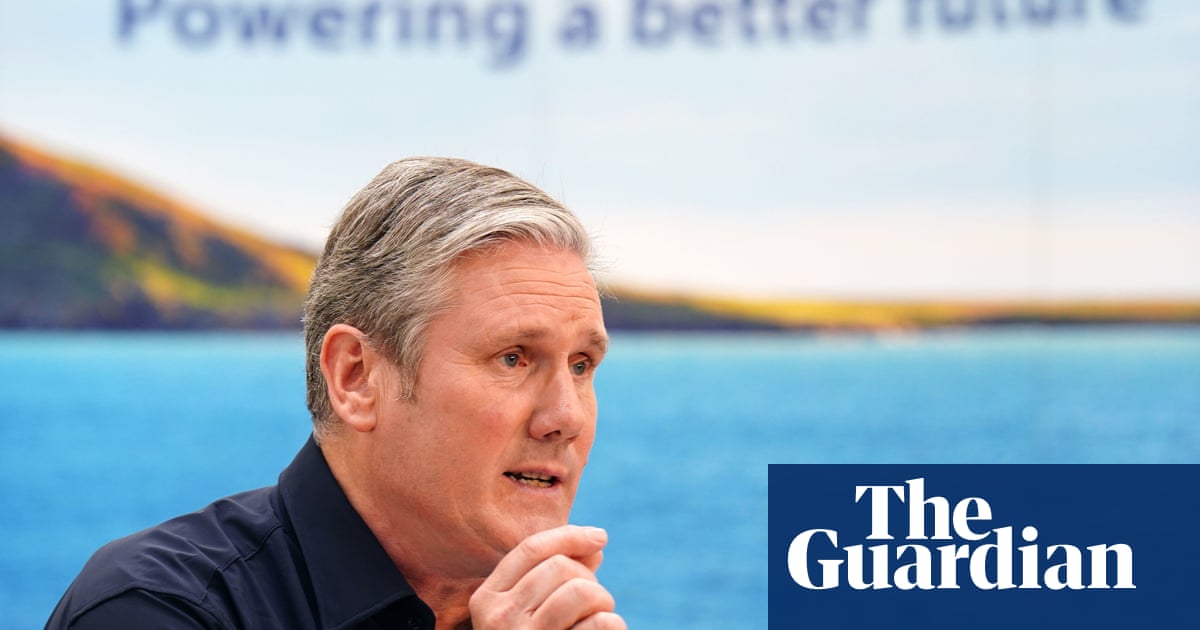Yeah they’ve tapdanced round this for a while - it’s been known for a bit that they were worried finances might not allow them to be too ambitious initially, they’ll try and ramp up to it later when (or if) the economy improves. Unfortunately, that makes it a lot easier to keep pushing the targets back which waters the whole effort down.
Even the bastions of neo-liberal capitalism like the IMF are saying that the UK needs to significantly ramp up investment rather than stick to fiscal austerity. This is entirely a political decision because Starmer’s labour are incredibly timid and paranoid that doing anything more than continuing the status quo with more competence will lose them their massive polling lead.
It won’t lose them the lead though. That’s why this decision has been unofficially leaked and denied for a while now. The Labour party have conducted polling in that time and seen that this decision doesn’t really register for the majority of their voters. Not all of their voters but enough that they’re confident in dropping this policy.
It’s how all parties operate, you’ll notice a pattern.
- Leak story.
- Claim you don’t know about the leak and won’t publicly comment. If asked give some fluffy answers.
- Get your research / polling department to gauge public opinion maybe via proxies: How would you feel of this rumour about policy X is introduced / dropped?.
- Figure out if this policy change will hurt you, be net neutral, or win you votes.
- If the change in policy hurts you then say this was a malicious leak and we do not support it.
- If the change in policy is neutral to you then say yes well unfortunately we will have to implement this change but there’s nothing to see here let’s move the news cycle on.
- If the change in policy is positive say thia was a leak that we don’t support because we were working on bringing proper communication for this out in the future but now that you mention it… yeah we’ll take credit for it.
Ultimately Labour voters need to be a lot more vocal about not voting for Labour if they continue to abandon green policies. But maybe because of the disenfranchised nature of our politics or that they just don’t give a shit about the environment they clearly aren’t going to stop supporting Labour because of this.
24h before the election they will admit they actually are the Tories
My hope is that this is all posturing so that Starmer will look electable to the public. The UK is a surprisingly right-wing country, and a good chunk of the country will see Labour pumping money into green initiatives as acting against their interests. Making few promises outside of easy ones is likely the way to get elected.
My fear is that Starmer is as populist as all the other Tory PM’s we’ve recently had, and that we’ll essentially see austerity again…
This is the best summary I could come up with:
Darren Jones, the shadow chief secretary to the Treasury, said on Friday Labour would decide how much to spend on environmental programmes once it got into government, depending on the individual schemes and the state of the economy.
Party officials have been discussing for weeks what to do about the £28bn commitment, which was made by the shadow chancellor, Rachel Reeves, in 2021, but which has been steadily scaled back since then.
Asked earlier this month by the BBC’s Laura Kuenssberg whether the promise would make it into the party’s manifesto, Starmer said: “In the way I’ve just described, then yes, of course.”
A party spokesperson told the Guardian two weeks ago: “We are committed to Labour’s green prosperity plan to drive growth and create jobs, including our plan to ramp up to £28bn of annual investment in the second half of the parliament, subject to our fiscal rules.”
Jones’s comments on Friday, however, reflect a new strategy by the party to drop the £28bn figure and focus instead on the schemes they have already announced, including a home insulation rollout and a new publicly owned energy company.
Those schemes however, add up to just under £10bn a year, meaning the party’s ambitions have now, in effect, been scaled back by two-thirds.
The original article contains 553 words, the summary contains 212 words. Saved 62%. I’m a bot and I’m open source!





